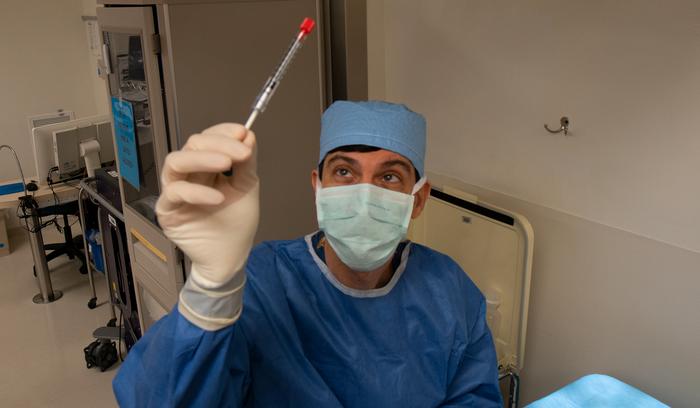A clinical trial called BRILLIANCE has shown that CRISPR gene editing is safe and effective in treating a form of inherited blindness caused by mutations in the CEP290 gene.
The trial, led by Dr. Eric Pierce of Mass Eye and Ear and sponsored by Editas Medicine, Inc., involved 14 individuals, including 12 adults and two children, who received a single injection of the CRISPR/Cas9 genome editing medicine, EDIT-101, in one eye.
The results, published in The New England Journal of Medicine, demonstrate that the treatment led to measurable improvements in vision in 11 of the participants, with no serious adverse events reported. The improvements were seen in various measures, including visual acuity, dark-adapted vision, visual function navigation, and vision-related quality of life.
CRISPR Gene Editing: A Potential Solution for Inherited Retinal Disorders
Mutations in the CEP290 gene are the leading cause of inherited blindness occurring in the first decade of life. These mutations cause rod and cone photoreceptors in the eye’s retina to function improperly, eventually leading to irreversible vision loss. Traditional gene therapies using adeno-associated virus (AAV) vectors are not suitable for targeting the CEP290 gene due to its large size.
CRISPR-Cas9, a gene editing toolkit that acts as a GPS-guided scissor to cut a portion of the mutated genome, has emerged as a potential solution for treating inherited retinal disorders. The goal of the BRILLIANCE trial was to inject CRISPR to reach the eye’s retina and restore the ability to produce the gene and protein responsible for light-sensing cells.
Promising Results and Future Directions
The BRILLIANCE trial included participants from five different trial sites across the United States, with the first patient receiving the CRISPR treatment in vivo at the Casey Eye Institute at Oregon Health & Science University. The second patient was treated at Mass Eye and Ear, followed by additional participants at Bascom Palmer Eye Institute, W.K. Kellogg Eye Center, and Scheie Eye Institute at the Children’s Hospital of Philadelphia (CHOP) and the Hospital of the University of Pennsylvania.
“This trial shows CRISPR gene editing has exciting potential to treat inherited retinal degeneration,” said Dr. Mark Pennesi, who led the team at the Casey Eye Institute. “There is nothing more rewarding to a physician than hearing a patient describe how their vision has improved after a treatment.”
Although the BRILLIANCE trial has been paused, researchers are exploring working with other commercial partners to conduct additional trials. Future studies aim to examine ideal dosing, age-related treatment effects, and refined endpoints to measure the impact of improved cone function on daily activities.
Keyword/Phrase: CRISPR gene editing for inherited blindness
If our reporting has informed or inspired you, please consider making a donation. Every contribution, no matter the size, empowers us to continue delivering accurate, engaging, and trustworthy science and medical news. Independent journalism requires time, effort, and resources—your support ensures we can keep uncovering the stories that matter most to you.
Join us in making knowledge accessible and impactful. Thank you for standing with us!

